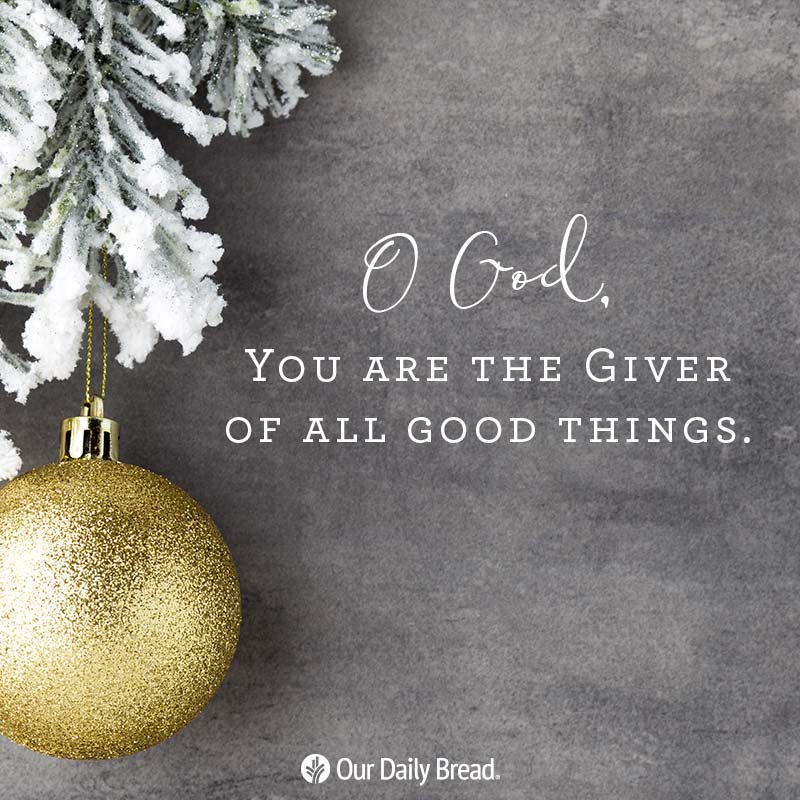The Highest Place
My husband invited a friend to church. After the service his friend said, “I liked the songs and the atmosphere, but I don’t get it. Why do you give Jesus such a high place of honor?” My husband then explained to him that Christianity is a relationship with Jesus. Without Him, Christianity would be meaningless. It is because of what Jesus has done in our lives that we meet together and praise Him.
Who is Jesus and what has He done? The apostle Paul answered this question in Colossians 1. No one has seen God, but Jesus came to reflect and reveal Him (v. 15). Jesus, as the Son of God, came to die for us and free us from sin. Sin has separated us from God’s holiness, so peace could only be made through someone perfect. That was Jesus (vv. 14, 20). In other words, Jesus has given us what no one else could—access to God and eternal life (John 17:3).
Why does He deserve such a place of honor? He conquered death. He won our hearts by His love and sacrifice. He gives us new strength every day. He is everything to us!
We give Him the glory because He deserves it. We lift Him up because that is His rightful place. Let us give Him the highest place in our hearts.

Just Another Day?
In “Christmas Every Day,” William Dean Howells tells of a little girl who gets her wish. For one long, horrible year it is indeed Christmas every day. By day three, the yuletide joy has already begun to wear thin. Before long everyone hates candy. Turkeys become scarce and sell for outrageous prices. Presents are no longer received with gratitude as they pile up everywhere. People angrily snap at each other.
Thankfully, Howell’s story is just a satirical tale. But what an incredible blessing that the subject of the Christmas celebration never wearies us despite the fact that we see Him throughout the Bible.
After Jesus had ascended to His Father, the apostle Peter proclaimed to a crowd at the temple in Jerusalem that Jesus was the one Moses foretold when he said, “God will raise up for you a prophet like me” (Acts 3:22; Deuteronomy 18:18). God’s promise to Abraham, “Through your offspring all peoples on earth will be blessed,” was really a reference to Jesus (Acts 3:25; Genesis 12:3). Peter noted, “All the prophets who have spoken have foretold these days”—the arrival of the Messiah (Acts 3:24).
We can keep the spirit of Christmas alive long after the celebrations have ended. By seeing Christ in the whole story of the Bible we can appreciate how Christmas is so much more than just another day.

Winter Snow
In winter, I often wake to the beautiful surprise of a world blanketed in the peace and quiet of an early morning snow. Not loudly like a spring thunderstorm that announces its presence in the night, snow comes softly.
In “Winter Snow Song,” Audrey Assad sings that Jesus could have come to earth in power like a hurricane, but instead He came quietly and slowly like the winter snow falling softly in the night outside my window.
Jesus’s arrival took many by quiet surprise. Instead of being born in a palace, He was born in an unlikely place, a humble dwelling outside Bethlehem. And He slept in the only bed available, a manger (Luke 2:7). Instead of being attended by royalty and government officials, Jesus was welcomed by lowly shepherds (vv. 15–16). Instead of having wealth, Jesus’s parents could only afford the inexpensive sacrifice of two birds when they presented Him at the temple (v. 24).
The unassuming way Jesus entered the world was foreshadowed by the prophet Isaiah, who prophesied the coming savior would “not shout or cry out” (Isaiah 42:2) nor would He come in power that might break a damaged reed or extinguish a struggling flame (v. 3). Instead He came gently in order to draw us to Himself with His offer of peace with God—a peace still available to anyone who believes the unexpected story of a savior born in a manger.

Ponder It
During Oswald Chambers’ years at the Bible Training College in London (1911–15), he often startled the students with things he said during his lectures. One young woman explained that because discussion was reserved for the following mealtime together, Chambers would frequently be bombarded with questions and objections. She recalled that Oswald would often simply smile and say, “Just leave it for now; it will come to you later.” He encouraged them to ponder the issues and allow God to reveal His truth to them.
To ponder something is to concentrate and think deeply about it. After the events leading to the birth of Jesus in Bethlehem, followed by the appearance of angels, and the shepherds who came to see the Messiah, “Mary treasured up all these things and pondered them in her heart” (Luke 2:19). New Testament scholar W. E. Vine said that “ponder” means “to throw together, confer, to put one thing with another in considering circumstances” (Expository Dictionary of New Testament Words).
When we struggle to understand the meaning of what is happening in our lives, we have Mary’s wonderful example of what it means to seek the Lord and His wisdom.
When we, like her, accept God’s leading in our lives, we have many new things about our Lord’s loving guidance to treasure and ponder in our hearts.

In Abundance or Affliction
Ann Voskamp’s book One Thousand Gifts encourages readers to search their lives daily for what the Lord has done for them. In it, she daily notes God’s abundant generosity to her in gifts both large and small, ranging from the simple beauty of iridescent bubbles in the dish sink to the incomparable salvation of sinners like herself (and the rest of us!). Ann contends that gratitude is the key to seeing God in even the most troubling of life’s moments.
Job is famous for a life of such “troubling” moments. Indeed, his losses were deep and many. Just moments after losing all his livestock, he learns of the simultaneous death of all his ten children. Job’s profound grief was evidenced in his response: he “tore his robe and shaved his head” (1:20) His words in that painful hour make me think Job knew the practice of gratitude, for he acknowledges that the Lord had given him everything he’d lost (v. 21) How else could he worship in the midst of such incapacitating grief?
The practice of daily gratitude cannot erase the magnitude of pain we feel in seasons of loss. Job questioned and grappled through his grief as the rest of the book describes. But recognizing God’s goodness to us—in even the smallest of ways—can prepare us to kneel in worship before our all-powerful God in the darkest hours of our earthly lives.
